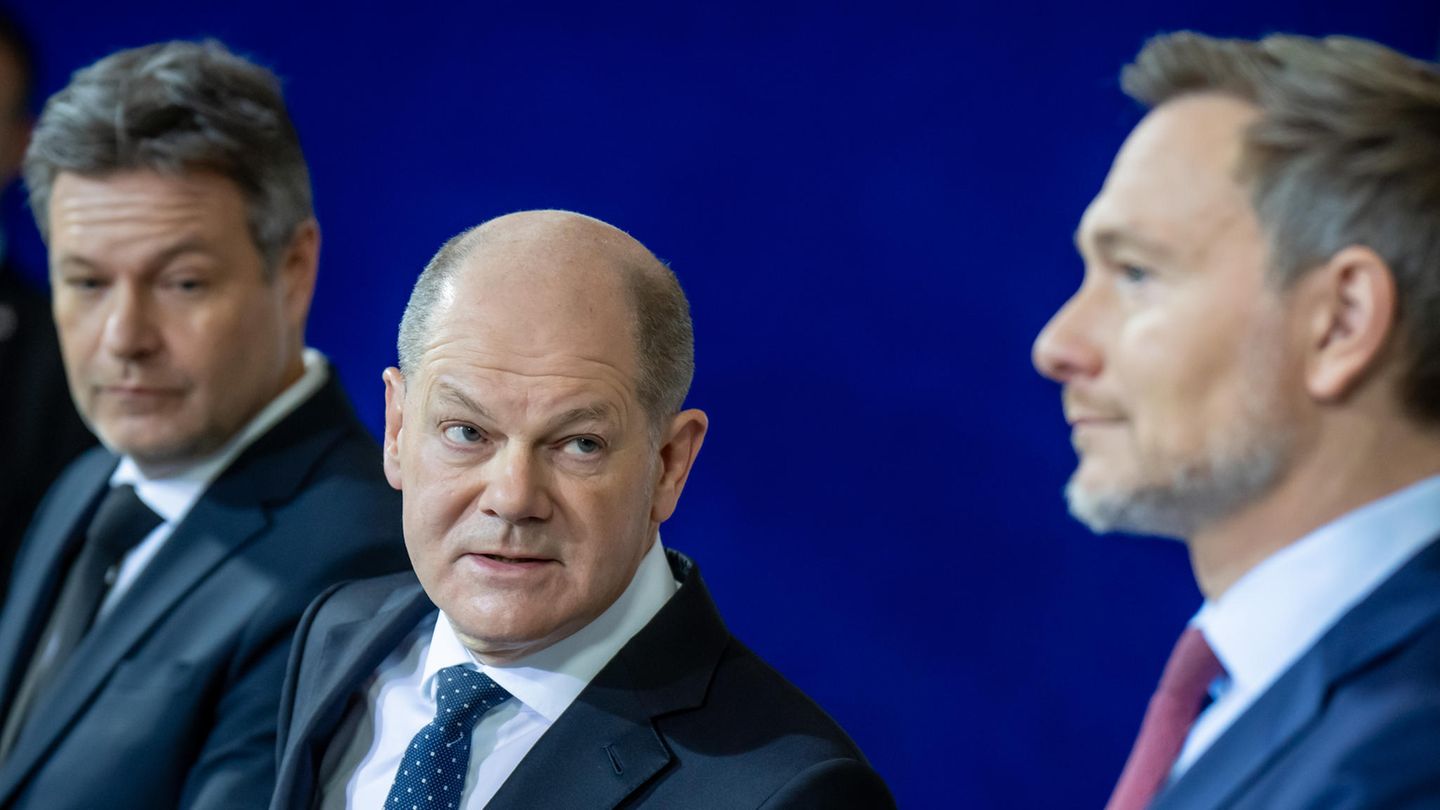The dispute over the federal budget has been settled. This was announced by the government spokesperson.
The leaders of the traffic light coalition have once again found a compromise on the federal budget for the coming year. This was announced by a government spokesman. “The requirements of the debt brake in the Basic Law will continue to be complied with, and there will be no circumvention.” The agreement essentially provides for the reallocation of funds for the federally owned Deutsche Bahn.
According to the federal government, this will reduce the so-called global spending cut by 4.5 billion euros to 12 billion euros. This is effectively a gap in the budget. The government assumes that this will be reduced further by economic development. However, Parliament now faces a relatively large task in its deliberations on the budget, because the global spending cut is significantly larger than usual.
New negotiations on federal budget
At the beginning of July, Chancellor Olaf Scholz (SPD), Vice Chancellor Robert Habeck (Greens) and Finance Minister Christian Lindner (FDP) had already announced an agreement on the budget for 2025. They had previously struggled for weeks to close a gap of at least 30 billion euros. This should then have been achieved without overly harsh austerity measures.
In the draft presented in July, the federal government had planned a so-called reduced expenditure of 17 billion euros. The federal government assumes that the ministries will not spend all of the money in the year anyway – for example because projects are delayed. This approach is quite common, but the amount is very high.
This gap should therefore be closed, and should actually be around eight billion euros. In addition, there were orders to examine whether the railway and the motorway company should receive credit-financed loans instead of direct subsidies from the budget. Another issue was money from the state development bank KfW.
Federal government orders expert opinion
After the agreement, Lindner had already made it clear that there were legal and economic concerns as to whether all the projects envisaged for a solution could actually be implemented.
Traffic light coalition
A touch of revolution: These are the books the German government is reading
After two reports had partially confirmed the doubts, the coalition partners rejected the idea of using 4.9 billion euros from the KfW for other purposes in the budget instead of for the gas price cap.
There was also controversy over whether the railway and motorway companies could be supported without this having to be counted towards the debt brake. Lindner and Scholz had different opinions on this – which is why renegotiations have now taken place.
More equity for the railway
Specifically, according to the government, the infrastructure division of Deutsche Bahn AG is to receive additional equity of 4.5 billion euros – this is to replace the subsidies provided for in the current draft of the 2025 federal budget. In addition, the railway is to receive a loan from the federal government of three billion euros. The debt brake will remain unaffected.
So far, an equity increase of around 5.9 billion euros is planned for 2025, which the railway will use to make investments to renovate the dilapidated rail network.
Union criticizes
The new draft for the federal budget for 2025 has met with clear criticism from the CDU/CSU. The government has been “dancing around the issue” of the budget for months, “only to then present something in a second attempt that is still highly questionable from a constitutional point of view,” said the budget policy spokesman for the Union parliamentary group, Christian Haase (CDU), to the AFP news agency on Friday.
“With this budget, we will not achieve the necessary ‘turnaround’ that citizens and companies are longing for,” said Haase with conviction. “Germany’s condition is that of a sick patient who unfortunately lacks the right medicine.” Haase judged that the government had “put on an undignified spectacle.” It “obviously lacks the strength for a solid budget.”
Note: This article has been updated several times.
Source: Stern
I have been working in the news industry for over 6 years, first as a reporter and now as an editor. I have covered politics extensively, and my work has appeared in major newspapers and online news outlets around the world. In addition to my writing, I also contribute regularly to 24 Hours World.




